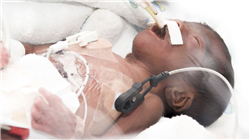University certificate
The world's largest faculty of medicine”
Introduction to the Program
Thanks to this 100% online Postgraduate certificate, you will gain an in-depth understanding of the early signs of Sepsis and Septic Shock in children, allowing you a faster and more accurate identification of these conditions"

In the midst of the ongoing fight against infectious emergencies, such as the COVID-19 pandemic, Pediatric Intensive Care Units (PICUs) face additional challenges in treating Sepsis in younger patients. Therefore, constant vigilance, specialization of medical staff and research into new therapeutic strategies are crucial to improve outcomes in the face of this threat.
This is how this Postgraduate certificate was born, which will address a wide range of crucial topics for the effective care of the youngest patients in critical situations. Among them, the ability to identify the early signs of Sepsis and Septic Shock in children, applying rapid response protocols. In this sense, physicians will recognize the subtle signs of these conditions, allowing timely intervention and reducing the risk of serious complications.
Likewise, the syllabus will focus on the implementation of initial management strategies, including fluid resuscitation and the appropriate use of antimicrobials. In this way, professionals will acquire practical skills to rapidly address hypoperfusion and organ dysfunction, crucial elements in the effective treatment of pediatric sepsis.
Finally, graduates will be updated in the differential diagnosis of Common Infectious Diseases in the PICU and the management of complications associated with Severe Infections and Sepsis, such as Multiorgan Failure. They will also be able to interpret laboratory studies and radiological findings relevant to the evaluation of Infections and Sepsis, which will facilitate more informed clinical decision making.
In this situation, TECH has created a comprehensive online program, adapted to the individual needs of students, eliminating barriers such as the need to travel to a physical location or adhere to fixed schedules. Additionally, it is supported by the revolutionary Relearning methodology, which involves the repetition of key concepts to ensure an optimal and natural understanding of the contents.
You will interpret relevant laboratory studies and radiological findings, recognizing and treating Emerging and Reemerging Infections, from the hand of the best digital university in the world, according to Forbes"
This Postgraduate certificate in Infectious Emergencies and Sepsis in the PICU contains the most complete and up-to-date scientific program on the market. The most important features include:
- The development of practical cases presented by experts in Infectious Emergencies and Sepsis in the PICU
- The graphic, schematic and eminently practical contents with which it is conceived gather scientific and practical information on those disciplines that are indispensable for professional practice
- Practical exercises where self-assessment can be used to improve learning.
- Its special emphasis on innovative methodologies
- Theoretical lessons, questions to the expert, debate forums on controversial topics, and individual reflection assignments
- Content that is accessible from any fixed or portable device with an Internet connection
You will address the recognition and treatment of Emerging and Reemerging Infections in the pediatric setting, through the best didactic materials, at the forefront of technology and education"
The program’s teaching staff includes professionals from the field who contribute their work experience to this educational program, as well as renowned specialists from leading societies and prestigious universities.
The multimedia content, developed with the latest educational technology, will provide the professional with situated and contextual learning, i.e., a simulated environment that will provide immersive education programmed to learn in real situations.
This program is designed around Problem-Based Learning, whereby the professional must try to solve the different professional practice situations that arise during the course. For this purpose, students will be assisted by an innovative interactive video system created by renowned and experienced experts.
You will examine the latest research and trends in the field of infectious diseases to address new challenges in the care of critically ill pediatric patients. Enroll now!"

You'll gain profound understanding and application of current guidelines for the management of pediatric Sepsis and Serious Infections, thanks to TECH's extensive library of multimedia resources"
Why study at TECH?
TECH is the world’s largest online university. With an impressive catalog of more than 14,000 university programs available in 11 languages, it is positioned as a leader in employability, with a 99% job placement rate. In addition, it relies on an enormous faculty of more than 6,000 professors of the highest international renown.

Study at the world's largest online university and guarantee your professional success. The future starts at TECH”
The world’s best online university according to FORBES
The prestigious Forbes magazine, specialized in business and finance, has highlighted TECH as “the world's best online university” This is what they have recently stated in an article in their digital edition in which they echo the success story of this institution, “thanks to the academic offer it provides, the selection of its teaching staff, and an innovative learning method aimed at educating the professionals of the future”
A revolutionary study method, a cutting-edge faculty and a practical focus: the key to TECH's success.
The most complete study plans on the university scene
TECH offers the most complete study plans on the university scene, with syllabuses that cover fundamental concepts and, at the same time, the main scientific advances in their specific scientific areas. In addition, these programs are continuously being updated to guarantee students the academic vanguard and the most in-demand professional skills. In this way, the university's qualifications provide its graduates with a significant advantage to propel their careers to success.
TECH offers the most comprehensive and intensive study plans on the current university scene.
A world-class teaching staff
TECH's teaching staff is made up of more than 6,000 professors with the highest international recognition. Professors, researchers and top executives of multinational companies, including Isaiah Covington, performance coach of the Boston Celtics; Magda Romanska, principal investigator at Harvard MetaLAB; Ignacio Wistumba, chairman of the department of translational molecular pathology at MD Anderson Cancer Center; and D.W. Pine, creative director of TIME magazine, among others.
Internationally renowned experts, specialized in different branches of Health, Technology, Communication and Business, form part of the TECH faculty.
A unique learning method
TECH is the first university to use Relearning in all its programs. It is the best online learning methodology, accredited with international teaching quality certifications, provided by prestigious educational agencies. In addition, this disruptive educational model is complemented with the “Case Method”, thereby setting up a unique online teaching strategy. Innovative teaching resources are also implemented, including detailed videos, infographics and interactive summaries.
TECH combines Relearning and the Case Method in all its university programs to guarantee excellent theoretical and practical learning, studying whenever and wherever you want.
The world's largest online university
TECH is the world’s largest online university. We are the largest educational institution, with the best and widest online educational catalog, one hundred percent online and covering the vast majority of areas of knowledge. We offer a large selection of our own degrees and accredited online undergraduate and postgraduate degrees. In total, more than 14,000 university degrees, in eleven different languages, make us the largest educational largest in the world.
TECH has the world's most extensive catalog of academic and official programs, available in more than 11 languages.
Google Premier Partner
The American technology giant has awarded TECH the Google Google Premier Partner badge. This award, which is only available to 3% of the world's companies, highlights the efficient, flexible and tailored experience that this university provides to students. The recognition as a Google Premier Partner not only accredits the maximum rigor, performance and investment in TECH's digital infrastructures, but also places this university as one of the world's leading technology companies.
Google has positioned TECH in the top 3% of the world's most important technology companies by awarding it its Google Premier Partner badge.
The official online university of the NBA
TECH is the official online university of the NBA. Thanks to our agreement with the biggest league in basketball, we offer our students exclusive university programs, as well as a wide variety of educational resources focused on the business of the league and other areas of the sports industry. Each program is made up of a uniquely designed syllabus and features exceptional guest hosts: professionals with a distinguished sports background who will offer their expertise on the most relevant topics.
TECH has been selected by the NBA, the world's top basketball league, as its official online university.
The top-rated university by its students
Students have positioned TECH as the world's top-rated university on the main review websites, with a highest rating of 4.9 out of 5, obtained from more than 1,000 reviews. These results consolidate TECH as the benchmark university institution at an international level, reflecting the excellence and positive impact of its educational model.” reflecting the excellence and positive impact of its educational model.”
TECH is the world’s top-rated university by its students.
Leaders in employability
TECH has managed to become the leading university in employability. 99% of its students obtain jobs in the academic field they have studied, within one year of completing any of the university's programs. A similar number achieve immediate career enhancement. All this thanks to a study methodology that bases its effectiveness on the acquisition of practical skills, which are absolutely necessary for professional development.
99% of TECH graduates find a job within a year of completing their studies.
Postgraduate Certificate in Infectious Emergencies and Sepsis in the PICU
The Postgraduate Certificate in Infectious Emergencies and Sepsis in the PICU of TECH Global University offers advanced training in the management of critical situations caused by severe infections in pediatric patients. This program, delivered in online classes, allows you to acquire specialized knowledge and practical skills from anywhere in the world. As a recognized institute, we are committed to academic excellence and innovation in medical education. The flexible online classes are designed for healthcare professionals who wish to expand their capabilities in the management of infectious emergencies and sepsis in the pediatric ICU. Course content includes early identification of signs and symptoms, application of advanced therapies, and intensive monitoring in critically ill pediatric patients. Participants will learn up-to-date strategies for antibiotic administration and fluid management, essential for improving clinical outcomes in complex situations.
Earn your degree online at the best medical school in the world.
Our teaching team is composed of experts in pediatric intensive care and infectious diseases, who combine theoretical knowledge with practical experience. This interaction ensures that students acquire advanced technical skills and the confidence to make critical decisions under pressure. Upon completion of the course, participants will be prepared to meet clinical challenges and provide high quality care to critically ill pediatric patients. This program represents a significant investment in professional development and an opportunity to make a positive difference in the health of the most vulnerable children. In summary, this University Course, taught by the distinguished Faculty of Medicine at TECH Global University of Technology is ideal for professionals looking to specialize in the management of infectious emergencies in PICUs. With accessible online classes and a hands-on approach, it guarantees comprehensive training that will positively impact clinical practice and pediatric patient care.







